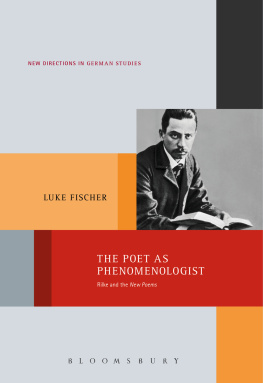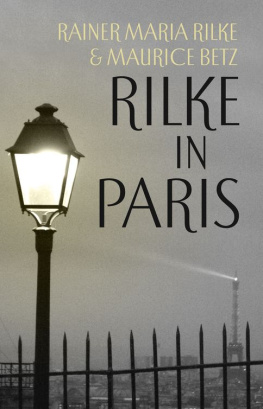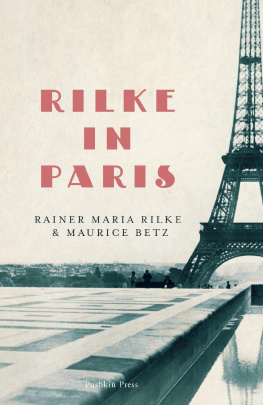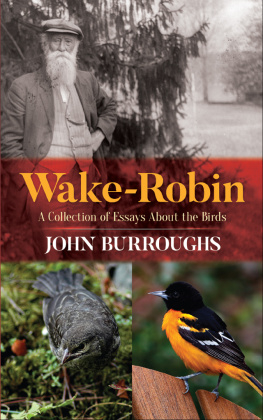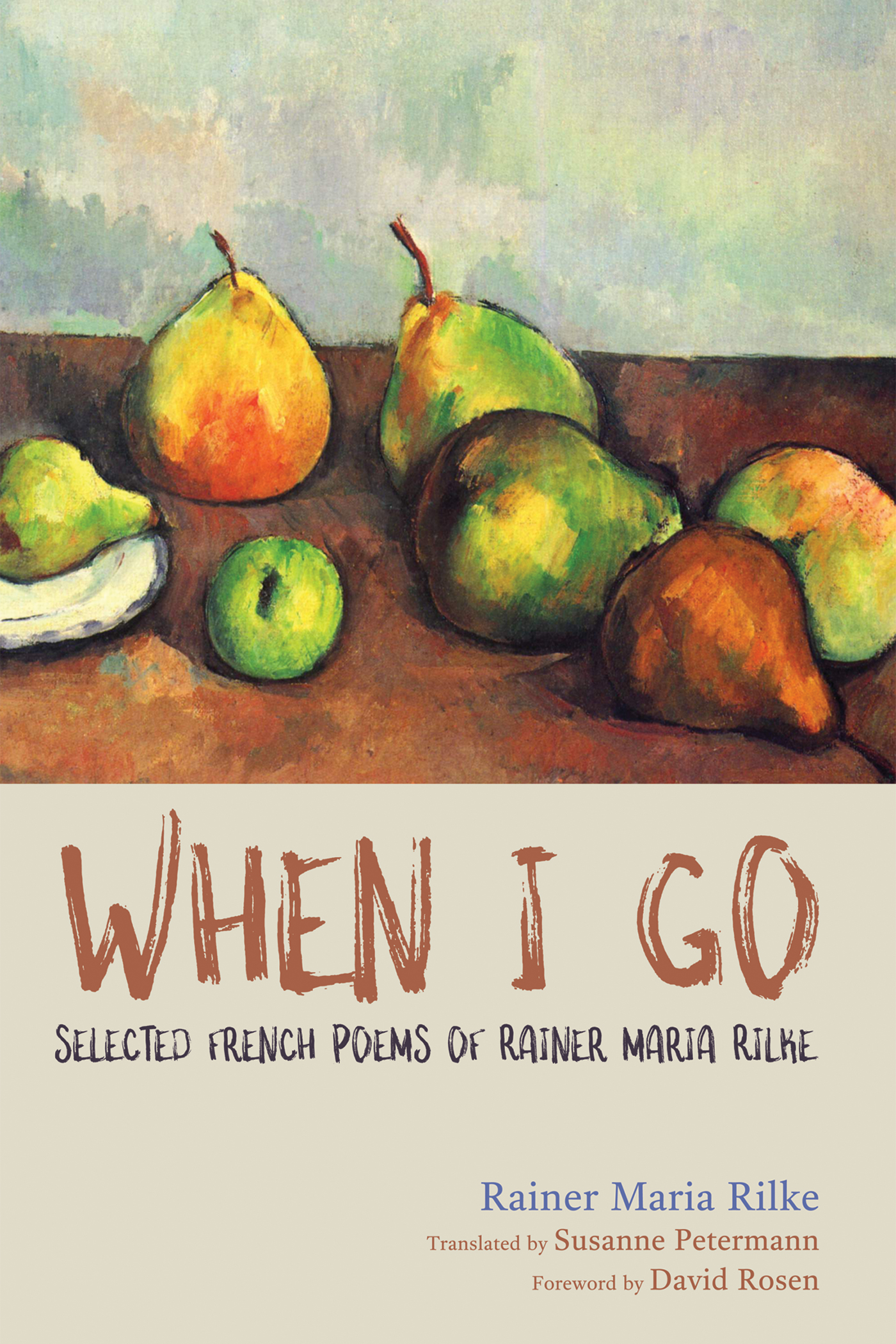When I Go
Selected French Poems Rainer Maria Rilke Translated with an Introduction by Susanne Petermann Foreword by David H. Rosen
WHEN I GO Selected French Poems Copyright 2017 Susanne Petermann. All rights reserved. Except for brief quotations in critical publications or reviews, no part of this book may be reproduced in any manner without prior written permission from the publisher. Write: Permissions, Wipf and Stock Publishers, W. th Ave., Suite , Eugene, OR 97401 .
Cascade Books An imprint of Wipf and Stock Publishers W. th Ave., Suite Eugene, OR 97401 www.wipfandstock.com ISBN : 987-1 - 326-0427 - (paperback) ISBN : 987-1 - 5326-0429 - (hardcover) ISBN : 987-1 - 5326-0428 - (ebook) Cataloging-in-Publication data: Names: Rilke, Rainer Maria, 1875 1926 , author | Petermann, Susanne, translator. Title: When I go : selected French poems / Rainer Maria Rilke ; translated with an introduction by Susanne Petermann. Description: Eugene, OR: Cascade Books, 2017 | Includes bibliographical data. Identifiers: --- 0427 - (paperback) | -- 5326 - 0429 - (hardcover) | -- 5326 -- (ebook) Subjects: LCSH: Poetry | Rilke, Rainer Maria, 1875 1926 Translations into English | French poetryTranslations into English. Classification: PT 2635 .I W 2017 (print) | PT 2635 (ebook).
Manufactured in the U.S.A. 09/17/15 Previous versions of some of these translations originally appeared in the following publications: Agni , Arroyo , Cave Wall , Cerise , Dark Mountain , Epiphany , the Inflectionist Review , Inventory , the Jefferson Monthly , Jerseyworks , the Jung Journal of Culture and Psyche , Loaded Bicycle , Manzanita Quarterly , Passageways , Rhino , Rowboat , Solstice , To Topos Poetry International , and Transference .
Foreword
W hat an honor to celebrate this collection of Rilkes French poems, When I Go . My association with Susanne came about through Rilke. As a Jungian analyst, I was reading The Journal of Analytical Psychology and there was an article on Rilke by Susanne. Her byline listed her name and said she was a Professional Organizer.
We were moving, so contacted her. She is a mover and shaker! Synchronicity was at work! Susanne has become much larger than life. She became a translator, without training. And I became a poet with no training, as mine was in medicine. Later with William Carlos Williams as my mentor and my mother as a model ( Thin Mask [New York: Crown Publications, 1939 ]). Rilke is a favorite poet of mine.
And I always loved his bow to the feminine. I had read Poulins translation of his French poems, but found it lacking. So Susannes translation is welcomed and needed. How grounding and liberating for Rilke to end up in the French part of Switzerland. The poets last years were in a special place. These poems were planted and then blossomed and bore fruit in the Valais.
Over the years, I have read Susannes refreshing translations. All of us await that day, when we go to that great beyond. Its clear from these end of life poems that he loved nature, as I do. What a joy to read Roses, as my surname means just that. And the small pond in front of our small house in the woods has roses in two places, where you can sit, gaze and smell the roses. David H.
Rosen
Acknowledgments
D eep gratitude to all who read these poems so generously. You comprise my writing tribe, and I dedicate this book to you. To Sedonia Cahill and Beverly White, my dear departed teachers: you saw this book before I ever did. To Aaron Scott who offered a singularly poetic view, his brother Ramsey who was at the right place at the right time, and their parents Ginger and George who suffered through early versions but read them anyway. To the Thursday Poets Patricia Sempowich, Joyce Epstein, and Peggy Heiner for their unwavering support during our Monday meetings. To R. To R.
Ellis Dye, my college German professor, who I will always remember for lighting in me the eternal flame of the love of fine literature. To Priscilla Hunter and Lia Beeson, fellow translators who never let me lose hope for this project. To Rebecca Reilly and Joe Stroud for living and breathing your poetry and being willing to write blurbs. To French speakers Isabelle Alzado and Rene Ct who helped me untangle Rilkes meanings, insofar as humanly possible. To Joanna Macy, Franz Wright, Robert Bly and Coleman Barks for their unsurpassed translations, and for writing back when I felt lost and confused. To Ray MacKenzie for being the first to read the whole manuscript and suggesting much-needed changes.
To Susan Hagen, Story Woman, for helping me tell the story of these poems. To the late Al Poulin for being the first to collect all of Rilkes French poems into one book. To Anne Stine, whose wilderness work will change the world, with much love. To the Wild Hearts Circle who clucked and fussed and ceremonied every time I announced progress on this book. And to my most ardent supporter, life partner and companion on the writers road, Holly Hertel: your love sustains me.
Introduction
We could easily be made to believe that nothing happened, and yet we have changed, as a house that a guest has entered changes.
L ike many students of German literature, I sailed through college with a passing understanding of Rainer Maria Rilkes work. More than a dozen years of post-college adventures and foreign travels followed, until I finally landed in Los Angeles where I encountered these poems in a close, dusty bookstore, by sheer happenstance. I didnt quite believe that Rilke had really written so much in French, so I bought the hefty volume, The Complete French Poems . I read enough of it to learn that, yes, Rilke had written eight or nine series of poems and fragments (about in all) in French shortly before he died. Before I could get very far, life intervened and the book lay half-forgotten among the others on my shelves, all of which tumbled to the floor a few months later, January 1994 , during the Northridge earthquake. Luckily, I was living a few suburbs away from the epicenter, so, for me, results of the shaking were no worse than kitchen cupboards being emptied, a few dishes broken, and a living room floor littered with books.
Exhausted from the shock and its aftermath, I sat down and opened Rilkes French poems quite at random. I was looking for comfort in the musical words of the master I remembered from college; I wanted desperately to nourish myself with words, learn something by heart that would affirm and soften my inner state. Instead, I was dismayed to find that the translation conferred little of Rilkes melancholic charm and depth. Even more surprising was the discovery that I was holding in my hands the only existing English translation of these poems to date. And, it was a book that hadnt even been compiled until 1979 , more than five decades after Rilkes death! My curiosity was stirred. After all, I had just spent four uninterrupted years completely immersed in the French language while living in France and Casablanca.
It was clear to me, when I compared the original to the translation, that these poems had not yet found the fullness of their expression in English. I set the book aside for further study, and over the next weeks and months, tentatively used a light pencil to change a word here and there. Slowly the poems grew on me, and, with the encouragement of friends, I continued to re-translate them. It took years before I joined the American Literary Translators Association and actually considered myself a translator. As a non-academic, I struggled to find my way through the translation process without the anchor or constraint of theory and background knowledge. The process of taking the poems apart and putting them back together in my native English felt unfamiliar and difficult.


